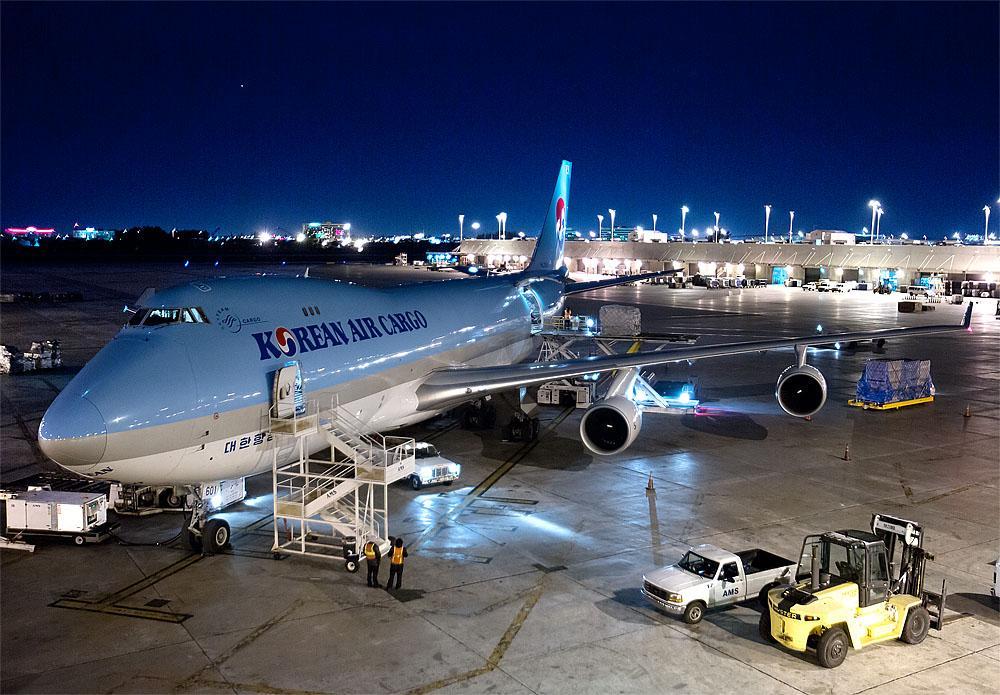
Korean Air has provided further evidence for the insatiable demand for air cargo with record annual and quarterly profits.
Despite passenger demand being hit by COVID-19 disruption, the flag carrier posted a 1.46 trillion won ($1.24 billion) operating profit for 2021. This was driven mainly by its cargo business, which pulled in 2.18 trillion won of revenue in the final quarter alone.
“Peak demand during the year-end holiday season and constraints in passenger jet belly space due to reduced operations have led to a noticeable increase in fares,” stated Korean Air. “The airline was able to respond proactively to the global supply chain disruptions and operational restrictions caused by the Omicron variant and provide clients with reliable services.”
Using its fleet of 23 widebody freighter aircraft, Korean Air was one of the first airlines to pivot toward the cargo market following the start of the pandemic, a strategy that has paid dividends.
Another Asian airline with a strong freighter fleet, China Airlines (CAL), is also reaping the rewards of this strategy, having announced air freight revenue of more than $500 million in December alone and $3.6 billion for the full year.
This week CAL confirmed an order for four additional Boeing 777 Freighters, which will give it 10 of the type once all orders are delivered. It also operates 18 747-400Fs.
Keen to replicate such success is Ireland-based Bluebird Nordic, which has just agreed to leases for three 777-300ERs via its parent Avia Solution Group.
Bluebird said the aircraft would eventually be converted and used for pure cargo operations from 2024, before which they will operate preighter and VIP operations.
Current trends also look encouraging for EFW, which this week delivered Altavair’s first converted Airbus A330-200P2F. EFW also agreed to ramp up its conversion capacity through a partnership with ST Engineering in Singapore.




